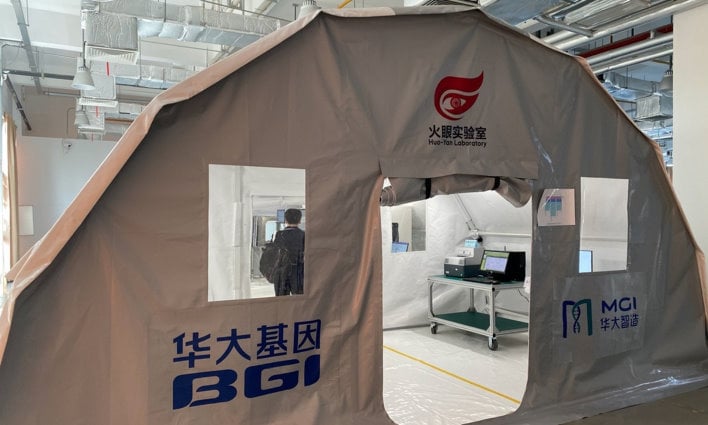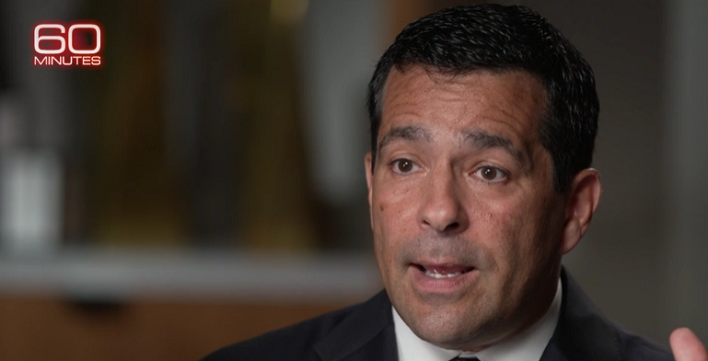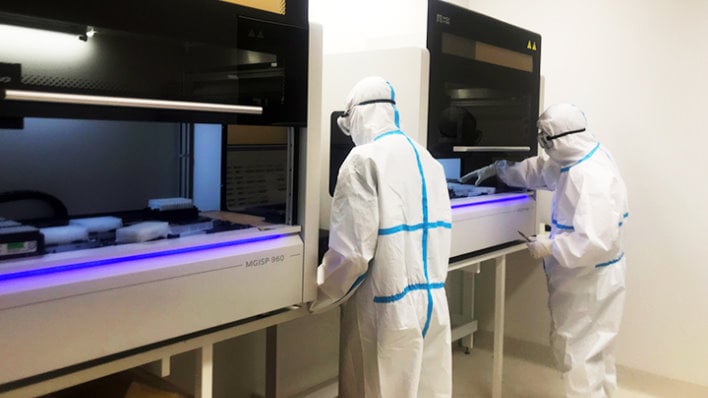U.S. Intelligence Claims China Biotech Firms Are Collecting Americans' DNA And Health Data

Over the course of the last 11 months or so, tens of millions of Americans have been tested for the SARS-CoV-2 virus which has caused the COVID-19 pandemic. Many, many more people globally have undergone the same tests. Amidst the scramble to test for and identify the virus responsible for a long-term global health crisis, some opportunistic companies have allegedly tried to wiggle their way into gaining advantages they wouldn't otherwise have. In one particular case, U.S. Intelligence officials were so concerned about biological data falling into the wrong hands, that they issued a rare public warning to stop it.
When the first confirmed cases of COVID-19 appeared in Washington state nearly a year ago, the largest biotech company in the world, the BGI Group (formerly known as the Beijing Genomics Institute), contacted Washington governor Jay Inslee to offer a rapid deployment of testing facilities throughout the state. BGI made similar offers to state governments in New York and California. In fact, BGI made offers to governments outside the U.S. as well, and other countries did take the company up on the offer. However, none of the states which BGI contacted accepted the firm's assistance after receiving urgent warnings from U.S. counterintelligence officials. Chinese firms obtaining data under the table has been a constant theme of recent times, including the ban that put Huawei's smartphone business in a world of hurt.

William R. Evanina is the former Director of the National Counterintelligence and Security Center, a position he held under presidents Obama and Trump for more than six years. He says that the agency was so concerned about BGI's possible ulterior motives that it made a rare public warning. The notice declared, "Foreign powers can collect, store, and exploit biometric information from COVID tests." Evanina believes that the Chinese government was exploiting its connection with the BGI Group to collect Americans' DNA in a race to control biometric data globally.
In an interview with CBS News' 60 Minutes, Evanina wanted to sound every alarm that he possibly could. "We put out an advisory to not only every American, but to hospitals, associations, and clinics. Knowing that BGI is a Chinese company, do we understand where that data's going?" One concern the NCSC had was whether handing over biodata would lead to a foreign government taking over Americans' healthcare. The rationale seems to be that if a foreign agency offers one service, it can lead to an irreversible erosion of American self-sufficiency over time. "From a long-term existential cost to our nation, do we want to do that? Do we want to have another nation systematically eliminate our health care services?" he asked rhetorically in the interview.

Evanina isn't alone among the U.S. intelligence community in his alarm over Chinese companies. In December, outgoing Director of National Intelligence John Ratcliffe made similar warnings. He said that the number one threat to U.S. national security is China, and cited data theft as a chief reason. Even the U.S. military issued a notice to all active service personnel advising them to avoid direct-to-consumer DNA testing from websites like 23andMe and Ancestry, saying the tests are largely unregulated and could expose personal and genetic information. The military notice further said that "outside parties" are actively exploiting genetic data, too.
CBS News' Jon Wertheim spoke with Evanina for the full interview, which is scheduled to air on CBS during 60 Minutes tonight at 7 PM Eastern time. Wertheim reached out to genealogy companies to find out if the data is really that valuable. Anne Wojcicki, CEO of 23andMe, told Wertheim that she believes that medical advances hinge on this data and also sees China's race for data as a threat. "We need to be super vigilant about China, you know, with any kind of data. But the issue is more that China is putting billions of dollars into their own genetic programs and we are not," she told CBS News.

